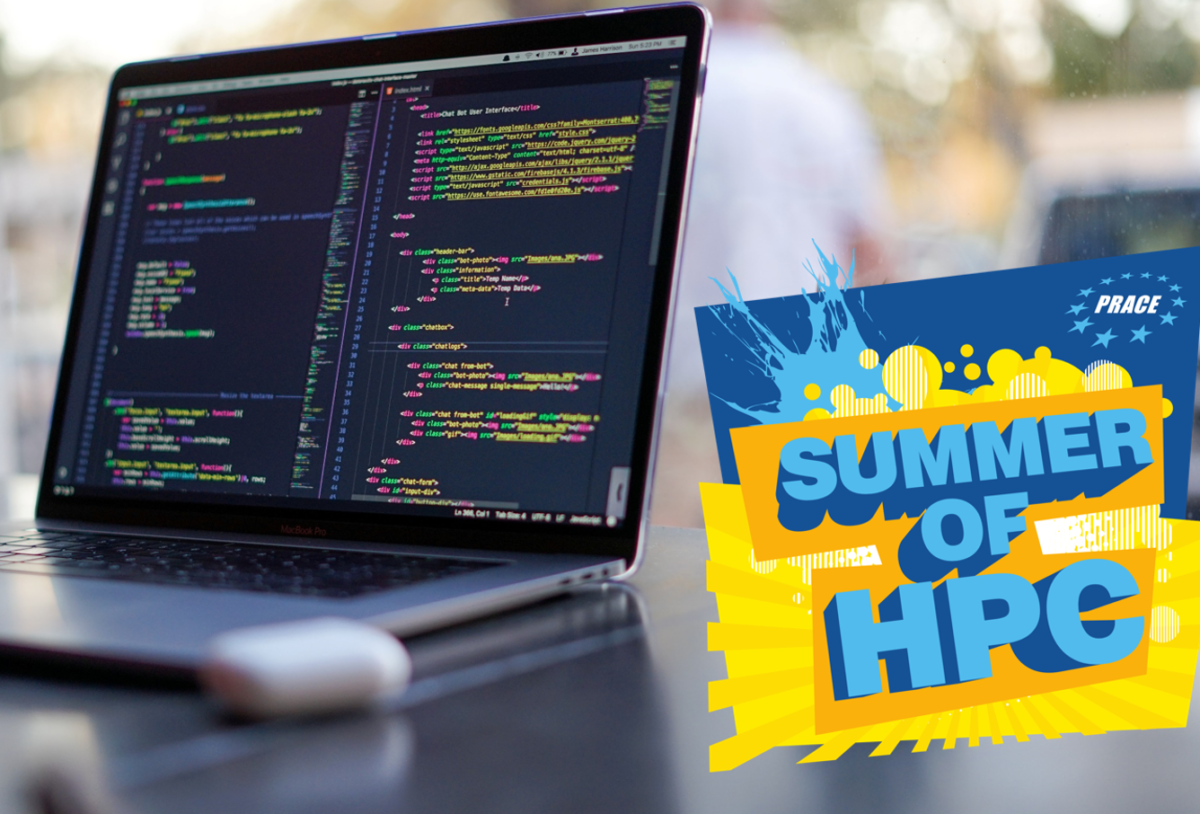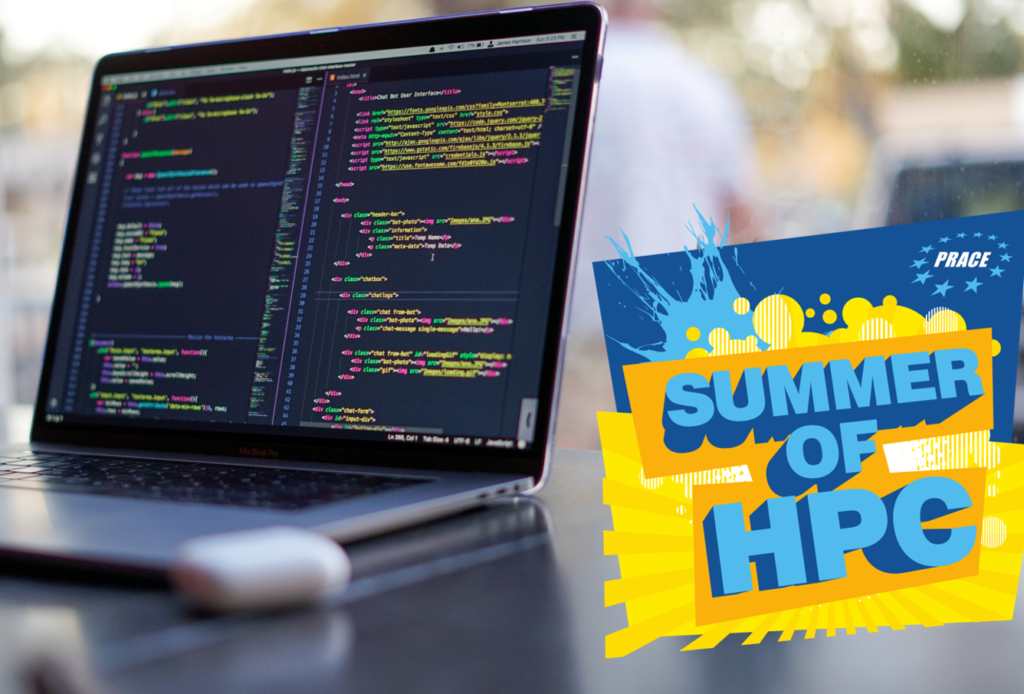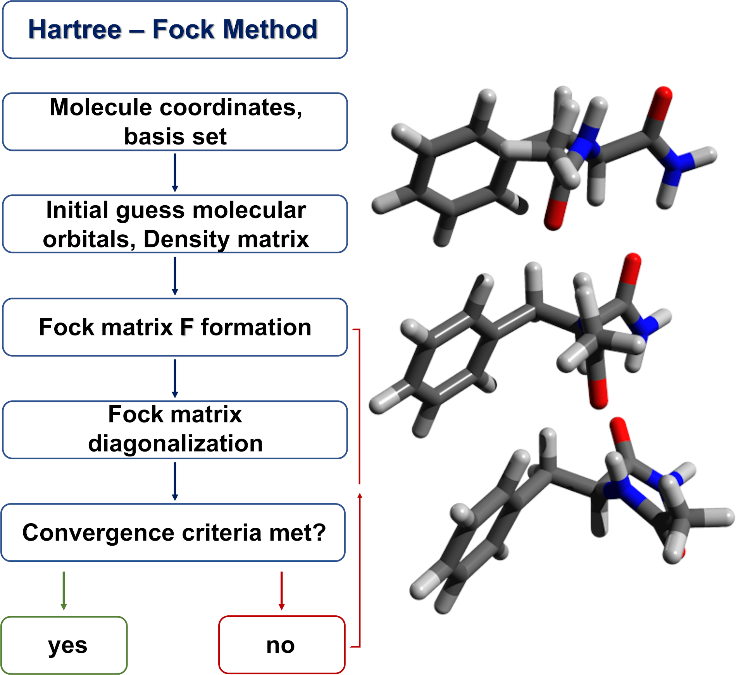Summer of HPC: Efficient Fock matrix construction in localized Hartree-Fock method
Join our team in Bratislava for the summer of 2021 and gain experience in coding, implementation and testing of parallel ab initio programme. During the two month project students will learn about fortran and MPI environments. They will also get familiar with ideas of efficient use of tensor-contractions and parallel I/O in quantum chemistry algorithms. The goal is to push the efficiency of the MPI code(s) to maximum.
PRACE partner countries and students studying at academic institutions in Europe have the opportunity to participate in summer internships at a European High Performance Computing (HPC) centre. The Summer of HPC rogramme promotes young emerging talents in HPC, increases their awareness of HPC and supports them towards becoming HPC users.
Solution of independent-particle model (DFT or Hartree-Fock method) is one of the key targets of many quantum chemistry codes. Hartree-Fock method is iterative procedure which consist of two time-consuming steps. First, construction of Fock matrix from integrals and density matrix. Second, diagonalization of constructed Fock matrix.
Several years ago we effectively removed diagonalization step which was replaced by matrix-matrix multiplications. Very recently we implemented the solution of Hartree-Fock equations in localised orbitals, which opens the route toward a code applicable for very large molecules. Currently, Fock matrix construction is implemented only in a sequential mode. The aim of the project will be the effective implementation of parallel versions of the developed software.
Students are expected to cooperate on implementation and performance testing of Fock matrix construction. Two different approaches will be implemented and tested. First, BLAS version combined with OpenMP or MPI. Second we would like to implement Fock matrix construction using sparse matrix multiplications. Both algorithms will be implemented in local version of quantum chemistry program DIRCCR12OS which is mostly coded in fortran. It contains working MPI environment so students will be using several routines already implemented in the code.
Late-stage undergraduate and master’s students are invited to apply. Background in quantum-chemistry or physics is needed. We would alsowelcome advanced knowledge of fortran, basic knowledge of MPI, BLAS libraries and other HPC tools. Previous experience in HPC is not required as training will be provided. The most important attribute is a desire to learn, and share experiences with HPC.
Student will have access to the necessary learning material, as well as to our local IBM P775 supercomputer and x86 infiniband clusters.
The summer programme begins on July 1st and ends on August 30th 2021. At the end of the internship students present their projects and may win a prize for the best project!
Applications deadline is April 12th 2021.
More information about project
 BeeGFS in Practice — Parallel File Systems for HPC, AI and Data-Intensive Workloads 6 Feb - This webinar introduces BeeGFS, a leading parallel file system designed to support demanding HPC, AI, and data-intensive workloads. Experts from ThinkParQ will explain how parallel file systems work, how BeeGFS is architected, and how it is used in practice across academic, research, and industrial environments.
BeeGFS in Practice — Parallel File Systems for HPC, AI and Data-Intensive Workloads 6 Feb - This webinar introduces BeeGFS, a leading parallel file system designed to support demanding HPC, AI, and data-intensive workloads. Experts from ThinkParQ will explain how parallel file systems work, how BeeGFS is architected, and how it is used in practice across academic, research, and industrial environments. When a production line knows what will happen in 10 minutes 5 Feb - Every disruption on a production line creates stress. Machines stop, people wait, production slows down, and decisions must be made under pressure. In the food industry—especially in the production of filled pasta products, where the process follows a strictly sequential set of technological steps—one unexpected issue at the end of the line can bring the entire production flow to a halt. But what if the production line could warn in advance that a problem will occur in a few minutes? Or help decide, already during a shift, whether it still makes sense to plan packaging later the same day? These were exactly the questions that stood at the beginning of a research collaboration that brought together industrial data, artificial intelligence, and supercomputing power.
When a production line knows what will happen in 10 minutes 5 Feb - Every disruption on a production line creates stress. Machines stop, people wait, production slows down, and decisions must be made under pressure. In the food industry—especially in the production of filled pasta products, where the process follows a strictly sequential set of technological steps—one unexpected issue at the end of the line can bring the entire production flow to a halt. But what if the production line could warn in advance that a problem will occur in a few minutes? Or help decide, already during a shift, whether it still makes sense to plan packaging later the same day? These were exactly the questions that stood at the beginning of a research collaboration that brought together industrial data, artificial intelligence, and supercomputing power. Who Owns AI Inside an Organisation? — Operational Responsibility 5 Feb - This webinar focuses on how organisations can define clear operational responsibility and ownership of AI systems in a proportionate and workable way. Drawing on hands-on experience in data protection, AI governance, and compliance, Petra Fernandes will explore governance approaches that work in practice for both SMEs and larger organisations. The session will highlight internal processes that help organisations stay in control of their AI systems over time, without creating unnecessary administrative burden.
Who Owns AI Inside an Organisation? — Operational Responsibility 5 Feb - This webinar focuses on how organisations can define clear operational responsibility and ownership of AI systems in a proportionate and workable way. Drawing on hands-on experience in data protection, AI governance, and compliance, Petra Fernandes will explore governance approaches that work in practice for both SMEs and larger organisations. The session will highlight internal processes that help organisations stay in control of their AI systems over time, without creating unnecessary administrative burden.


